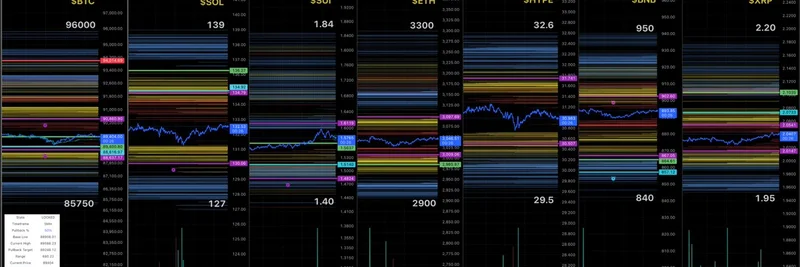In a recent clip shared by 11AM with Seed Club, Austin Federa, co-founder of DoubleZero, dives into the project's groundbreaking interaction with the U.S. Securities and Exchange Commission (SEC). This comes hot on the heels of DoubleZero's mainnet-beta launch and the go-live of its native token, $2Z. For those in the blockchain space, especially folks dabbling in meme tokens on Solana, this is big news—regulatory clarity like this doesn't come around often.
DoubleZero is a Decentralized Physical Infrastructure Network (DePIN) built on the Solana blockchain. Think of it as a way to crowdsource high-performance fiber-optic networks for blockchain applications. Instead of relying on big telecom companies, DoubleZero lets individuals and entities contribute bandwidth and get rewarded with $2Z tokens. These rewards are distributed programmatically based on your contribution's performance and reliability. It's like earning crypto for sharing your internet connection, but supercharged for blockchain needs.
The SEC No-Action Letter: What It Means
The highlight of the discussion is the no-action letter DoubleZero received from the SEC on September 29, 2025. A no-action letter is basically the SEC saying, "We won't come after you if you do things this way." In this case, the SEC reviewed two key aspects of DoubleZero's operations:
Programmatic distribution of rewards: This involves paying contributors in $2Z for providing network capacity. The SEC confirmed this doesn't count as a securities transaction.
Staking rewards: Although not live yet, future staking where token holders earn more $2Z for locking up their tokens also got the green light.
As Federa explains in the clip, this was a months-long process. "The SEC has a process where you can go to them and say, 'We would like to do this activity in the future. Could you review this activity and see if it will run afoul of your interpretation?'" He notes that while these letters are common in traditional finance, they're rare in crypto—the last one was over four years ago.
You can check out the full letter on the SEC's website.
Insights from Austin Federa's Interview
In the interview, Federa breaks it down simply: "One was on the programmatic distribution of rewards to contributors, which is basically paying the fiber contributor in $2Z for providing capacity to the network. And the second piece was around staking rewards… making sure those are not classified as securities transactions."
This clarity is crucial because many crypto projects, including some meme tokens, have faced SEC scrutiny over whether their tokens are unregistered securities. By getting this approval, DoubleZero sets a precedent for how DePIN projects—and potentially other token reward systems—can operate without fear of enforcement actions.
Federa, who previously served as head of strategy at the Solana Foundation, brings a wealth of experience to DoubleZero. His background helps bridge the gap between innovative blockchain tech and regulatory compliance.
Why This Matters for Meme Tokens and the Broader Crypto Ecosystem
While DoubleZero isn't a meme token itself, its home on Solana makes this relevant to the meme coin crowd. Solana hosts tons of popular meme tokens, and regulatory wins like this could pave the way for more secure token launches and reward mechanisms. Imagine meme projects distributing airdrops or rewards without worrying about SEC lawsuits—it could supercharge community engagement and innovation.
Overall, this no-action letter signals a potential shift in how the SEC views functional tokens in decentralized networks. As SEC Commissioner Hester Peirce noted in her statement, it allows market forces to drive innovation without unnecessary regulatory hurdles. For blockchain practitioners, it's a reminder to engage with regulators early and design systems that emphasize utility over investment promises.
If you're building or investing in DePIN or Solana-based projects, keep an eye on DoubleZero. Their approach could become a blueprint for navigating U.S. regulations while pushing the boundaries of decentralized tech.
For more details, watch the full clip on X or explore DoubleZero's official site.

